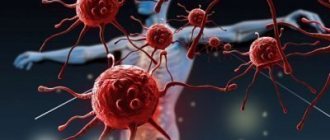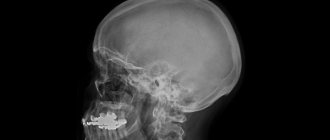Life can be full of stressful situations, whether it's worrying about your job or personal relationships, or coping with the restrictions imposed by the current global pandemic or financial crisis. No matter how high the stress level, your body reacts violently. It does not directly lead to death, but stress can have serious long-term health effects.
Fortunately, there are many ways to help yourself cope with stress and, despite difficulties, find the strength to continue to enjoy life!
Therefore, if you are having a hard time or are nervous about your future, you need to know how to recognize stress and learn how to manage it in your daily life. We’ll talk about this in a series of articles about his “majesty” stress.
What it is?
The term “stress” refers to a state of the body in which all its reserves begin to operate. Chronic stress has a particularly difficult effect on people who are inclined to build a career, who are experiencing difficult life situations, who are undergoing training, etc. They do not perceive a change in activity as rest, so a long-term uncontrolled state makes it impossible for a person to be calm, measured, and in harmony with himself . This leads to disruption of sleep, all metabolic processes, and the functioning of organ systems.
Skin and hormones
During stress, corticotropin (ACTH), corticorelin (CRH) and their receptors are produced by keratinocytes of epidermal and hair follicles, melanocytes, sebocytes and mast cells. The functions of these hormones in the skin are varied and specific.
CRH In dermal fibroblasts and melanocytes, it acts as a growth factor, stimulates proliferation and inhibits apoptosis. In mast cells, it increases vascular permeability, demonstrating pro-inflammatory functions and leading to selective secretion of vascular endothelial growth factor (VEGF). In keratinocytes it stimulates the pro-inflammatory production of interleukin 6, in melanocytes it inhibits signaling of the transcription factor NF-κB, in sebocytes it stimulates the production of lipids. ACTH Responsible for stimulating hair growth and inducing differentiation in sebocytes. Stimulates the production of glucocorticoids. Cortisol is the main stress hormone in humans. Typically, its levels undergo daily fluctuations, regulated by the internal circadian system, with peak levels in the early morning and lowest points around midnight. Chronic sleep deprivation can significantly disrupt cortisol levels and cortisol fluctuations.
Signs
Symptoms of chronic stress are always clearly visible, and not only the attending physician can detect them - anyone nearby, as well as the patient himself, can easily notice them:
- sleep and eating disorders - a person either eats stress or forgets to eat. Sleeps poorly or little.
- general weakness of the body, inability to function normally without taking tonic drugs. Headaches are also common symptoms of stress.
- fatigue, lack of interest in what is happening in life.
- concentration decreases, memory is unable to retain certain information, and the speed of the thought process decreases.
- nervousness - a person is characterized by constant fussiness, a desire to correct something, and a search for answers. Offering him to sit, rest or sleep, he still finds something to do.
- there is a craving for alcohol, alcohol, sweets - the patient, tired of constant stress, tries to get positive emotions from harmful foods or drinks.
- decreased immunity and exacerbation of chronic diseases.
Chronic stress has a particularly insidious effect on people, since in the process they not only get tired, but also experience a feeling of dissatisfaction. Realizing that they could do more or better, stressed individuals end up painting themselves into a corner.
Let's understand the definitions
The famous Austrian doctor Hans Selye wrote in his book:
“Stress is more than just nervous tension.”
This fact needs to be especially emphasized. Many non-specialists and even some scientists tend to equate biological stress with nervous overload or strong emotional arousal. Recently, Dr. J. Mason, former president of the American Psychosomatic Society and one of the most prominent researchers in the psychological and psychopathological aspects of biological stress, devoted an excellent essay to the analysis of stress theory. He considers the common denominator of all stressors to be the activation of the physiological apparatus responsible for emotional arousal, which occurs when threatening or unpleasant factors appear in a life situation taken as a whole. In a person with his highly developed nervous system, emotional stimuli are practically the most common stressor, and, of course, such stressors are usually observed in psychiatrist patients.
But in addition to emotional stimuli, there are other stressors:
- Sleep deficiency
- Chronic pain
- Low calorie diets
- Deficiency of macro- and microelements
- Habitual intoxications (alcohol, cigarettes)
- Chronic diseases
- Bad climatic conditions
- Excessive insolation
Stress is a general adaptation syndrome, a set of general protective reactions that occur in the body of animals and humans under the influence of external and internal stimuli of significant strength and duration (Hans Selye).
Hans Selye himself called stress “the aroma and taste of life” and said that only those who do nothing can avoid it.
What's next?
What are the consequences of constant loads? How do long-term stressful situations affect a person? Alas, in Russia for a long time they did not pay attention to chronic stress at all - it was believed that it was enough to survive the current circumstances and events, and then everything would get better. But the modern rhythm of life forces a person to be in a nervous state all the time - one problem is solved, another arises, so it is impossible to get rid of stress forever.
Chronic stress has very sad consequences. Alcoholism, blood pressure surges, gastrointestinal diseases, heart attacks, strokes, excessive sweating, nausea, muscle pain, trembling, causeless chills, etc. It is also interesting that many diseases have become “younger”. If previously they were encountered by people aged 45 and above, now many 30-year-old young women and men are forced to see doctors, take maintenance medications, and have very disappointing diagnoses.
Types of Stress
Feeling excessively stressed over a long period of time is often referred to as chronic or long-term stress, and it can affect both physical and mental health. There are several types of stress.
Acute stress
Acute stress happens to everyone. This is the body's immediate reaction to a new and difficult situation. This is the type of stress you might feel after narrowly avoiding a car accident.
Acute stress can also come from something you really enjoy. It's the somewhat scary but exciting feeling you get on a roller coaster or skiing down a steep mountainside.
These cases of acute stress are usually not harmful. They may even be good for you. Such stressful situations give your body and brain the opportunity to better respond to future stressful situations, as if toughening you up.
Once the danger passes, your body systems return to normal.
Severe acute stress
Severe acute stress is a different story. This type of stress is for example when you are faced with a life-threatening situation. It can lead to post-traumatic stress disorder or other mental health problems.
Episodic acute stress
Episodic acute stress refers to frequent episodes of acute stress.
This can happen if you often worry about what might happen. You may feel like your life is chaotic and you seem to move from one crisis to another.
Some professions, such as law enforcement or firefighting, can also lead to frequent stressful situations.
As with acute stress, episodic acute stress can affect your physical health and mental well-being.
Chronic stress
When you have high levels of stress over a long period of time, you have chronic stress.
This condition will inevitably have negative effects on your health. This type of stress can provoke:
- anxiety;
- the occurrence of heart and vascular diseases;
- depression;
- high blood pressure;
- weakening of the immune system.
Chronic stress can also be a culprit in common illnesses such as headaches, upset stomach, and sleep problems.
There is another type of stress - oxidative or oxidative stress . Read about this in the article: 5 important keys to health.
Causes
Constant stress and its symptoms can affect everyone, but the reasons for this may be different:
- Heredity - if everyone in a family is overly susceptible, then the next generations do not cope well with the load;
- Nervous system disorders and hormonal imbalances;
- Chronic psycho-emotional stress;
- Lack of routine and lack of rest;
- Unfavorable financial and living conditions, poor family relationships.
Thus, every person can face chronic stress, regardless of lifestyle, type of activity and place of residence.
Treatment
How to get rid of chronic stress? If a person himself understands that he is going through a long stressful period, it will be a little easier for him to cope. Often, patients believe that everything is fine with them, they correspond to the load, so they continue to actively solve problems, forgetting about rest. It will be more difficult for such people to prevent the consequences of prolonged exercise.
In the absence of pathological signs, you can:
- Yoga practice - the ancient Indians developed a system of exercises that helps to focus on inner peace, harmony and forget about problems. Regular exercises relieve many diseases, pathologies of the gastrointestinal tract, cardiovascular systems, and musculoskeletal system.
- Breathing - if you can’t visit a yoga studio, and it’s difficult to do exercises at home, you can do breathing exercises, right at your workplace. It does not require a lot of time, additional accessories, etc. At any convenient moment, a few minutes of proper breathing will ensure an influx of oxygen into the brain, which will lead to the normalization of all vital processes.
- Relaxation - massage and other similar services perfectly relieve general stress, allow you to relax and unwind.
- Changing your lifestyle - you need to reconsider your regime, find time for rest in it, and start eating right. By setting aside at least an hour of time for yourself, it is easy to get rid of the symptoms of stress, and, as a result, never have to deal with its consequences.
Specialist intervention
Treatment of chronic stress, the consequences of which have turned a person’s existence into crazy chaos, must be carried out under the supervision of doctors. This is especially true for those whose illnesses have worsened or new ones have emerged. Diagnosis begins with a visit to a therapist - he examines the patient, listens to complaints, gives directions for tests, on the basis of which he assesses his condition. Next, you can visit a neurologist, gastroenterologist, endocrinologist and cardiologist.
In some cases, sessions with a psychotherapist are prescribed - the number of consultations is selected individually. Don’t forget about going to a cosmetologist, because prolonged stress leaves its mark on the face, the skin deteriorates, and bruises appear under the eyes.
How to cope with particularly difficult cases? Go to the clinic - sometimes doctors recommend hospitalization. The hospital knows how to treat
consequences.
Skin and adrenal hormones
When activated by stress, the adrenal glands release epinephrine and norepinephrine as well as catecholamines through the sympathetic-adrenal-medullary axis (SAM). Adrenaline is synthesized in keratinocytes, and adrenergic receptors are present in both epidermal keratinocytes and melanocytes. In keratinocytes, adrenaline causes a significant increase in ATP, which increases calcium concentration. Calcium may regulate proliferation and differentiation of the epidermis, and perhaps adrenaline may influence the condition of the epidermis. Adrenaline also affects the functions of fibroblasts, including migration and collagen production, which is important in wound healing.
Treatment with drugs
What should you do if the first signs appear due to constant emotional and physical stress? Pharmaceuticals will support:
- Herbal - the pharmacy sells many medicines based on natural ingredients. “Persen”, “Novo-passit”, tincture of peony, motherwort and their analogues will help get rid of excitability, be calmer and more resilient.
- Dietary supplements and vitamins - since constant stress leads to a malfunction of all organs and systems, it is necessary to support the body with vitamin complexes.
- Related drugs - “Glycine”, “Valocordin”, such drugs are not classified as sedatives, but have a sedative effect. For this reason, they help relieve tension and combat constant stress.
- Complex drugs - tranquilizers, antidepressants should be prescribed only by the attending physician. Constant fatigue and excitability can be treated with them, but they cause addiction, so specialist supervision is necessary.
Recommendations
It is possible to cure diseases caused by stress. But it is also possible to avoid problems, not to cause chronic fatigue, so as not to have to deal with long-term treatment later. To do this, just use the following tips:
- Let everything take its course - sometimes little depends on us, but we try to speed up the process or increase the efficiency of doing certain things. In most cases, this is not required at all, so try to get rid of unnecessary worries and waste of energy.
- Do what you love - it’s easy to provoke a stressful situation. If a person is constant, stable, does an excellent job, but does not enjoy it, this process can be compared to violence. Moreover, the longer it takes, the more difficult it will be to get rid of the consequences, so allow yourself a hobby, look for a job that would bring pleasure.
- Sing - yes, singing has a brilliant therapeutic effect, thanks to which difficulties and stress become invisible. Vocal performance relieves anxiety and gives new, positive emotions. As soon as you feel angry or anxious, slowly hum your favorite song to yourself.
It is important to understand that chronic workload invariably leads to stress, which, in turn, leads to serious illnesses. It is important to prevent this from happening, to monitor your health, prioritizing a prosperous future rather than the desire to earn more money or prove something to someone. Try to find ways to relax, rest, travel, go to concerts - by receiving positive emotions and preserving the body’s reserves, you can easily eliminate the possibility of stressful situations.
Post-traumatic stress in adults and children
Physiological mechanisms of stress
What is stress resistance and how to develop it?












